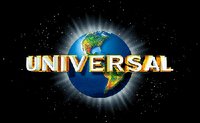Globalisation
How much of the media you consume is global?
I don't think most of the media I consume is global. TV wise some of the programmes I watch are 'Lost' which is a US show, 'Neighbours' that is Australian and 'Eastenders' which is British, this shows I consume a wide variety of media. However, most channels do have US based shows such as channel five showing 'Prison Break', 'CSI' etc, the new Five US channel is dedicated to these kinds of US shows.
When using the internet most of the sites I use are American, but I am often unaware of this unless using 'Google', but the internet has mostly US sites. Overall, most of the media that people consume is often global and US based, and its becoming hard to avoid it as globalisation continues.
How much of the media you consume is global?
I don't think most of the media I consume is global. TV wise some of the programmes I watch are 'Lost' which is a US show, 'Neighbours' that is Australian and 'Eastenders' which is British, this shows I consume a wide variety of media. However, most channels do have US based shows such as channel five showing 'Prison Break', 'CSI' etc, the new Five US channel is dedicated to these kinds of US shows.
When using the internet most of the sites I use are American, but I am often unaware of this unless using 'Google', but the internet has mostly US sites. Overall, most of the media that people consume is often global and US based, and its becoming hard to avoid it as globalisation continues.


